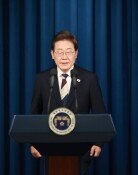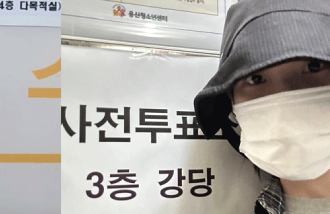Foreign and Security Policy Blamed for Diplomatic Debacles
Foreign and Security Policy Blamed for Diplomatic Debacles
Posted July. 29, 2008 03:18,
The governments diplomatic and security corps are under heavy criticism for mishandling Singapores surprise modification of the chairmans statement at an Asian security forum and the U.S. Board of Geographical Names` change of the Dokdo islets status to undesignated sovereignty.
If the government fails to shake up its diplomatic corps over the Dokdo debacle, critics warn that the administration could face more diplomatic chaos. Worse, the Korean public could go from protesting U.S. beef imports to the Foreign Ministrys mishandling of diplomatic affairs.
A presidential adviser in Seoul said yesterday, Some in the senior presidential secretaries meeting said the Korean Embassy in Washington couldve thoroughly responded to the change in Dokdos status by the U.S. Board of Geographic Names. Consequently, disciplinary measures will be taken after confirming details.
Ruling Grand National Party floor leader Hong Joon-pyo told the partys Supreme Council meeting with Foreign Minister Yu Myung-hwan attending, We suggested the need for a task force beforehand to tackle the issue, but the ministry obviously failed to do so.
The presidential office has reportedly begun a long review over the scope and the targets of disciplinary measures. The debate is divided over those who wish to limit blame to personnel related to Dokdo, including Korean Ambassador to Washington Lee Tae-shik, and those who want a general shake-up of the diplomatic and security policy line-up.
The pro-shakeup group blames the series of diplomatic quandaries on incompetence by the Lee administrations foreign and security personnel. The mishaps include Chinas Foreign Ministry spokesman referring to the Korea-U.S. alliance as a relic of the past; confusion between Seoul and Washington over the announcement of U.S. President George W. Bushs visit to Korea; and the slow response to the shooting death of a South Korean tourist in North Korea.
An adviser to President Lee Myung-bak said, Since the governments core diplomatic and security policy line-up consists mostly of diplomats such as Minister Yu, Unification Minister Kim Ha-joong and senior presidential secretary for diplomacy and national security Kim Sung-hwan, it is difficult for them to break free from a business-as-usual mindset.
The GNP`s Supreme Council member Kong Seong-jin on a radio program criticized the modification of the chairmans statement of the ASEAN Regional Forum. The government itself took away the authority from the so-called MB (Myung-bak) Doctrine that emphasizes international cooperation, he said.
If the investigation reveals a strategic misjudgment, Minister Yu should step up to take the blame.
Yu, however, countered in a meeting with reporters after the GNP Supreme Council meeting, I reject the allegation that diplomacy should be entirely blamed for utterly failing to prevent the ARF incident.
Ambassador Lee spoke at a news conference at the Korean Embassy in Washington Sunday, saying, It is regrettable that I did not take appropriate measures promptly.
I will do my best to rectify U.S. misunderstanding by holding talks with officials from the State Department and other relevant organizations to explain that the Dokdo islets are Korean territory based on history, geography and international law.
ddr@donga.com sechepa@donga.com



![“국힘 41% 득표가 졌잘싸? 되레 독 될수도”[정치를 부탁해]](https://dimg.donga.com/c/138/175/90/1/wps/NEWS/IMAGE/2025/06/04/131745994.1.jpg)



